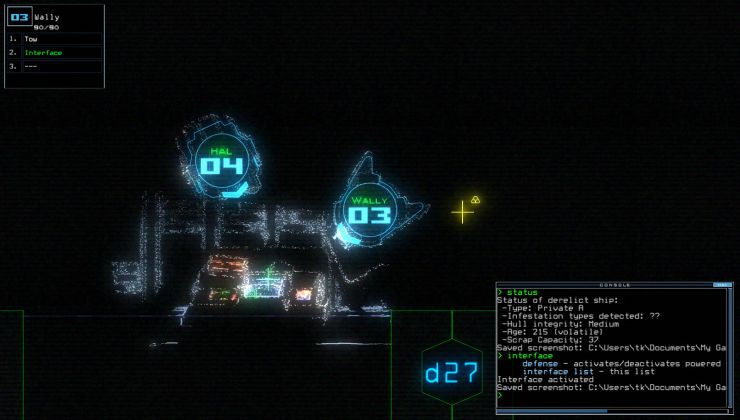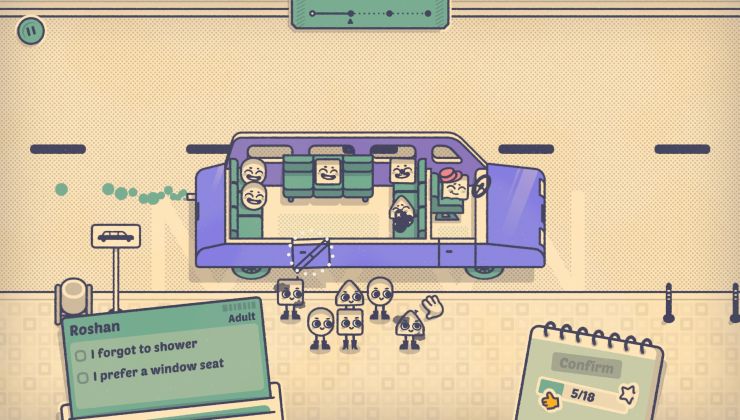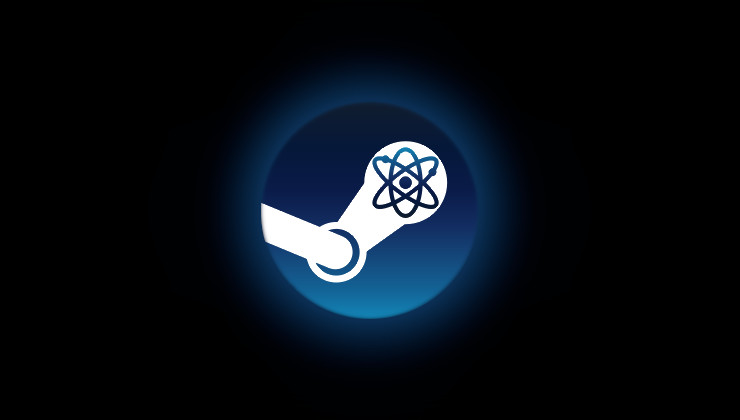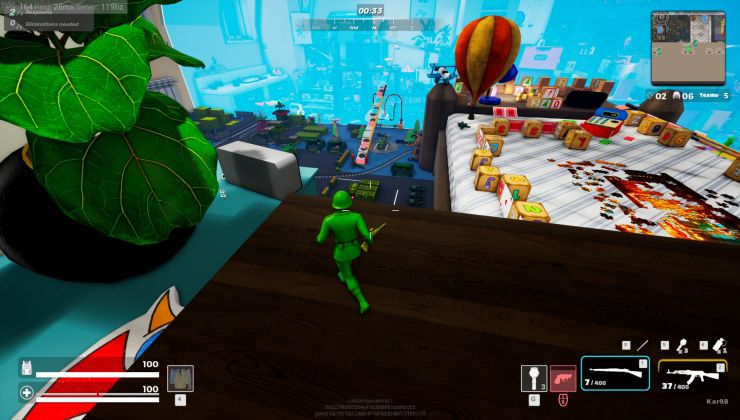As you might have heard by now, Canonical has made the decision to drop 32bit support from Ubuntu 19.10 onwards.
Writing on the mailing list, as well as this post on Ubuntu's Community Hub, Canonical gave a reminder that the decision isn't coming without warning. It was proposed last year and it was followed up with another post detailing a final decision to be made in the middle of 2019. So here we are, the decision seems to have been made.
The problem isn't hardware, as likely around 99% of people nowadays have a 64bit capable computer. Going by our own statistics, from what 2,254 users told us only 4 are using a 32bit Linux distribution. The issue then, is mainly software and libraries needed to actually run 32bit applications. This is where it sounds like there's going to be plenty of teething issues, with a number of people not too happy about the decision.
Steam, for example, is one such application along with plenty of 32bit games that will likely never get updated, although Canonical did say they're "in discussions" with Valve about it. There's also GOG, Humble Store and itch.io which all provide a number of direct-download 32bit games, which do not supply the required 32bit libraries to run. It doesn't sound like they have been given any thought (at least they haven't been mentioned).
Another of the major problems being Wine, with a discussion now happening on their mailing list. The discussion doesn't seem to be too positive, with developer Henri Verbeet even saying "I think not building packages for Ubuntu 19.10 would be the only practical option.", although Andrew Eikum's idea of using the Steam Runtime could be an interesting way around it.
What are your thoughts?
--
Addressing 14's comment (just prior to this) about using a (Debian) system: Debian is designed in such a way that you can have very 'stable' reliable software, which is carefully maintained, but the repositories aren't as cutting edge. Then there is the 'testing' distribution which is still very reliable and it has repositories with more recent software, and you can *easily* distro upgrade between the 'stable' release and the next one up the tree 'testing'. Then the next is 'unstable' and the top one is 'experimental'.
For the purposes of sticking with the one system, you can do that with Debian, and you can distro-upgrade whenever you're ready to do so. When you distro-upgrade it generally goes without any hitches, i.e. you shouldn't run into problems and need to rebuild your system.
On top of all that, more advanced users can "mess around" by using backports or even installing software from more unstable versions. I actually run Debian 10 Buster (currently 'testing' but due to become the 'stable' version in a few weeks time) with the latest experimental Nvidia drivers (by messing around with the apt package management config).
If I want to upgrade the Debian 10 Buster to the next 'testing' release, I just need to run distro-upgrade commands and it'll all happen without fuss. Chances are, I won't bother upgrading to the newer software in 'testing' for a number of months, and when I do I won't take any chances and will backup my partition before running the upgrade.
--
Finishing off with this: If Ubuntu does push through this change, I think it is going to generally be bad for the whole Linux ecosystem i.e. It will not encourage new users to move to Linux, and it might cause existing users to move away.
Last edited by g000h on 21 Jun 2019 at 5:45 am UTC
> Many 64-bit applications still use either a 32-bit installer or some
> 32-bit components. In comparison 64-bit Windows will support 32-bit
> (probably) forever.
Make that almost all applications. It's very unusual for a program to
have a 64-bit installer, because it won't be able to control what
happens when a user runs the installer on 32-bit Windows.
In practice, the only cases where 64-bit only wine will be useful are
when 64-bit applications are packaged some other way (such as a .zip,
Steam Play, or packaging specifically for Wine) or for running Wine
builtins like msidb.
So, almost all Windows apps won`t be able to install in 64-bit wine. Looks like Canonical kinda did not think about that when made the decision, but I don`t see them changing their mind now.
And yes, I am so glad Linux Mint Debian Edition exists, hope it will become the new gaming distro for newcomers.
1) They're dropping big functionality for small gain, which seems stupid, and
2) It will be easy for Ubuntu derivatives to just put the 32-bit libraries back.
But maybe it is a big deal. Maybe there's some huge amount of work involved in maintaining this stuff--or rather, in using the stuff Debian is already maintaining . . .
Could someone enlighten me on this?
No more legacy 32bit WINE games (almost all of my WINE collection and 95% pre-2010 Windows™ games)?
Lots of native closed-source Linux games, like "Aquaria" (which developers went defunct) rendered unusable? Who will make Snaps for those?
Dropping 32bit support is foolish, IMO. My condolences to "*buntu" users. :(
...
Lots of native closed-source Linux games, like "Aquaria" (which developers went defunct)
...
Funny you mention Aquaria, one of the few exceptions that prove the rule, since it's been open sourced for years:
http://www.bit-blot.com/forum/index.php?topic=4313.0
^_^
Last edited by emphy on 21 Jun 2019 at 6:44 am UTC
But LTS distros are really not as good for desktop use case. Their main target audience are servers. That's why many gamers use rolling or more frequently than LTS release distros.This is not true at all. I have been using only LTS versions since at least 2012. I got tired of trying to keep up. In fact I use the last LTS for up to a year past the new one, just to make sure all the bugs are squashed. With decent ppa support I have had no problems playing anything. Keeping up with non-LTS Ubuntu is often a fools game and only for developers or enthusiasts. I am too old for that, now.
Stability rules. I would happily switch to Debian if my PPAs for nvidia drivers, telegram, vivaldi, keepasXC, insync, and spideroak keep working?
Edit: Just checking and it looks like most of those work fine. Hmm. Does anyone have any comments on the KDE Debian spin?
Last edited by no_information_here on 21 Jun 2019 at 7:08 am UTC
It did? Wow! Didn't know that. Last thing I heard was the studio had effectively dissolved. It's been a while since I had returned to that game (it was one of the first purchased games after my switch to GNU/Linux)....Funny you mention Aquaria, one of the few exceptions that prove the rule, since it's been open sourced for years:
Lots of native closed-source Linux games, like "Aquaria" (which developers went defunct)
...
http://www.bit-blot.com/forum/index.php?topic=4313.0
^_^
Edit: Just checking and it looks like most of those work fine. Hmm. Does anyone have any comments on the KDE Debian spin?
I'm using KDE from Debian testing for a long time already. It works well, but rarely transitions of KDE frameworks libraries and Plasma have some mistakes, when packages don't migrate all at once, which can temporary break things. Maintainers try to avoid such cases, but it happened a few times in the past, that forced me to roll back to some previous snapshot until things started moving. In general, KDE in Debian can benefit from more developers and maintainers.
Last edited by Shmerl on 21 Jun 2019 at 7:29 am UTC
But fully dropping 32-bit support for good is a bad decision as not all software is open source and/or maintained. I love how you can run older Windows software in Linux -- software that does not work in Windows 10 anymore. This is one of the greatest benefits of Linux as you do not need to use WM to run older software if you happen to need to do that.
I don't care if the 32-bit libraries are inside the main system or in some sandbagged environment without needing to use VM to do that.
Last edited by legluondunet on 21 Jun 2019 at 7:35 am UTC
I'm using KDE from Debian testing for a long time already. It works well, but rarely transitions of KDE frameworks libraries and Plasma have some mistakes, when packages don't migrate all at once, which can temporary break things. Maintainers try to avoid such cases, but it happened a few times in the past, that forced me to roll back to some previous snapshot until things started moving. In general, KDE in Debian can benefit from more developers and maintainers.Thanks. I will watch the Buster release with interest. I am overdue for a distro update anyway...
Last edited by no_information_here on 21 Jun 2019 at 7:50 am UTC
Generally speaking though 32 bit OS still have their niche use and are needed. The decision to drop the architecture has a lot more implications outside gaming. But Ubuntu is not Debian, its desktop images are general purpose in their scope. I would say that dropping 32bit is a wise decision.
Ofc Canonical as a desktop OS provider doesn't have the "power" to force software developers hand. But given that most developers that deliver on linux also delivers on mac and Apple already did it for itself I expect this to go quite well for them.
Somehow it sounds like this announcement came late for something that is supposed to happen in 19.10. Could it be that they're just testing the waters?non LTS releases are for testing and development, so in general 32bit support ends in 2021 and even then 18.04 will still get security updates till 2023. I don`t feel any decision could be too late for Ubuntu non LTS release.
Are there a good choice as it is recommend on Linus Tech Tipps.
Last edited by Spirimint on 21 Jun 2019 at 8:21 am UTC
Somehow it sounds like this announcement came late for something that is supposed to happen in 19.10. Could it be that they're just testing the waters?non LTS releases are for testing and development, so in general 32bit support ends in 2021 and even then 18.04 will still get security updates till 2023. I don`t feel any decision could be too late for Ubuntu non LTS release.
Were almost half way into the 19.10 cycle. I think that is pretty late such a decision. And testing resistance is a good way to find out if it's worth going on with it for another LTS release.
Is there a Debian (stable) repo for more recent kernels and nvidia drivers or would I have to install that sort of stuff manually? Maybe it's finally time to give in to the Arch menace.
At the moment, you should install the upcoming stable (buster), which will officially release in some weeks. I'm living fine with Debian stable plus backports repo. Others prefer Debian testing, which is rolling.












 21 Jun 2019
21 Jun 2019
 How to set, change and reset your SteamOS / Steam Deck desktop sudo password
How to set, change and reset your SteamOS / Steam Deck desktop sudo password How to set up Decky Loader on Steam Deck / SteamOS for easy plugins
How to set up Decky Loader on Steam Deck / SteamOS for easy plugins
See more from me